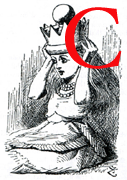[The following passage comes from the author’s The Sexual Imperative in the Novels of Sir Henry Rider Haggard, which is reviewed elsewhere on this site. — George P. Landow]

elibacy was a topic that concerned novelists, especially the New Woman writers, in the later years of the nineteenth century. Sally Ledger notes Sue’s wish for a ‘comradely’ relationship with Jude in Jude the Obscure (1895), Angelica’s adoption of male clothes in order to conduct a friendship of equals with a boy in The Heavenly Twins (1893), and Lyndall’s friendship with Waldo in The Story of an African Farm (1883), which she tells him is based not on gender but upon their common intellectual curiosity. This novelistic concern was a response both to the perceived negatives for women of the Victorian marriage equation and to the contemporary demographics which, in the form of the English Census for 1861, recorded a steadily increasing surplus of unmarried women. The journalist William Greg records that they were compelled to ‘lead an independent and incomplete existence of their own’. Elaine Showalter opines: ‘Fin-de-siècle feminists interpreted […] the surplus of unmarried women to prove that women’s traditional domestic roles were outmoded’. And she proposes two further literary considerations of the subject. Olive Chancellor, a Boston feminist vying with Basil Ransom for the aff ections of Verena Tallant in Henry James’s The Bostonians (1886), loses the battle but in doing so gains an articulacy to argue for the feminist movement. Later writers depicted celibacy as altogether less empowering. Rhoda Nunn in George Gissing’s The Odd Women (1891) is a militant feminist strongly opposed to marriage and deeply suspicious of men. Despite herself, and much to her chagrin, she falls in love with Everard Barfoot. She finally refuses to marry him, but finds that she is profoundly changed by her self-discovery.
Frayling in Sarah Grand’s The Heavenly Twins (1893) marries Colonel Colquhoun on the understanding that their marriage will not be consummated. However, the strain of sexual abstinence results in depression and her attempted suicide. Referring to these preoccupations of some New Women writers, Showalter comments that ‘advanced late nineteenth century thinkers acknowledged women’s capacity for sexual pleasure and discussed the psychological and biological harmfulness of celibacy’. Haggard aligns himself with this position when he comes to consider the question of celibacy in Stella Fregelius and The Way of the Spirit. But the two novels differ fundamentally in their representations. In the former, Haggard attributes to Stella a feminist, New Woman view of marriage: ‘I have my own ideas about matrimony, and the conditions under which I would undertake it are not at all likely ever to be within my reach’ (168), although no biographical or ideological reasons are offered as substantiating background to her assertion. And Stella, unlike the New Woman heroines of Gissing’s and Grand’s novels, encounters no moment of self-revelation or debilitation in her insistence upon celibacy.
Its result and the focus of Haggard’s apparent interest in the book is the negative impact upon Morris. In The Way of the Spirit too the focus is primarily on the male protagonist. Rupert may insist upon a sexual renunciation in the form of a purely celibate relationship with Mea: ‘there must be no more of this love- talk between us’ (197). But this is as a response to solely practical considerations; his sad experience with Clara, his mother’s plea that he ‘follow the way of the Spirit, not that of the Flesh’ (20), and the fact that he is already married. . . . Unlike the authors of Jude the Obscure, The Odd Women and The Heavenly Twins, Haggard touches only lightly on the effects of celibacy upon his heroines. [106-107, 120]
Related Material
- The New Woman Fiction: An Introduction
- Slum Fiction
- The New Woman Fiction — Primary Sources
- The New Woman Fiction — Secondary Sources
Bibliography
Greg, William R. ‘Why are Women Redundant?’ National Review 14 (1862): 434–60.
Ledger, Sally. The New Woman: Fiction and Feminism at the Fin de Siècle. Manchester: Manchester University Press, 1997.
Reeve, Richard. The Sexual Imperative in the Novels of Sir Henry Rider Haggard. London and New York: Anthem Press: 2018.
Showalter, Elaine. Sexual Anarchy. London: Bloomsbury, 1990.
Last modified 8 September 2018